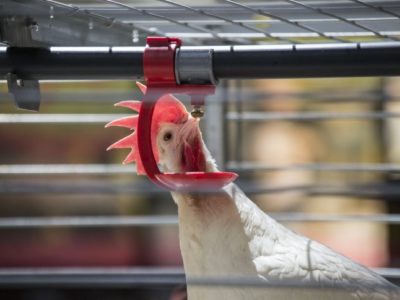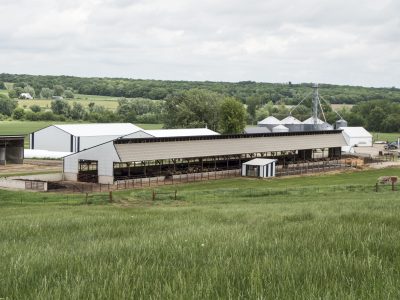Livestock Farm Inspection
On September 11, 2013, EPA Region 7 and the Iowa DNR signed a “work plan agreement” that established guidelines for evaluations of livestock and poultry farms. The work plan stems from a petition filed by environmental groups in 2007, claiming DNR does not comply with the Clean Water Act and that the EPA should take over the National Pollutant Discharge Elimination System (NPDES) program. This agreement is designed to strengthen Iowa’s implementation of the federally authorized NPDES program and is an important step toward retaining authority to implement the federal program in Iowa.
The work plan obligates DNR to evaluate livestock farms larger than 300 animal units and document whether the farms are in compliance with the Clean Water Act.
“Livestock regulations are complex, sometimes ambiguous and are constantly changing,” says CSIF Executive Director Brian Waddingham. “For Iowa’s livestock and poultry farms to prosper, farmers must know and understand state and federal regulations and the resources available to help them remain viable on the land for generations to come.”
Checklist to Prepare Your Farm For a DNR or EPA Inspection (PDF)
For more information, or to set-up a no-cost, confidential farm consultation, contact the Coalition to Support Iowa’s Farmers here or by calling 800-932-2436.
Livestock rules and regulations are constantly changing. Are you prepared?
In this episode of The Spokesman Speaks podcast, Brian Waddingham (Executive Director of the Coalition to Support Iowa’s Farmers) discusses some of the ways that farmers can enhance their neighbor relations, and he gives livestock farmers some tips for preparing for a potential EPA or DNR inspection.
Related Resources

Rules + Regulations
Larger livestock farms are more regulated than smaller livestock farms, but all livestock producers must adhere to regulations, including set-back distances and water-protection rules.
Read MoreNeighbor Relations
There are many steps to successfully growing a farm. One of the often-overlooked, yet possibly most important, steps is communicating with neighbors. Neighbor relations isn’t easy – every farm and...
Read More
Siting Considerations
While Iowans strongly support farmers and give them high marks for trustworthiness and importance, they do have questions related to specific farming practices. These may include such topics as odor,...
Read More